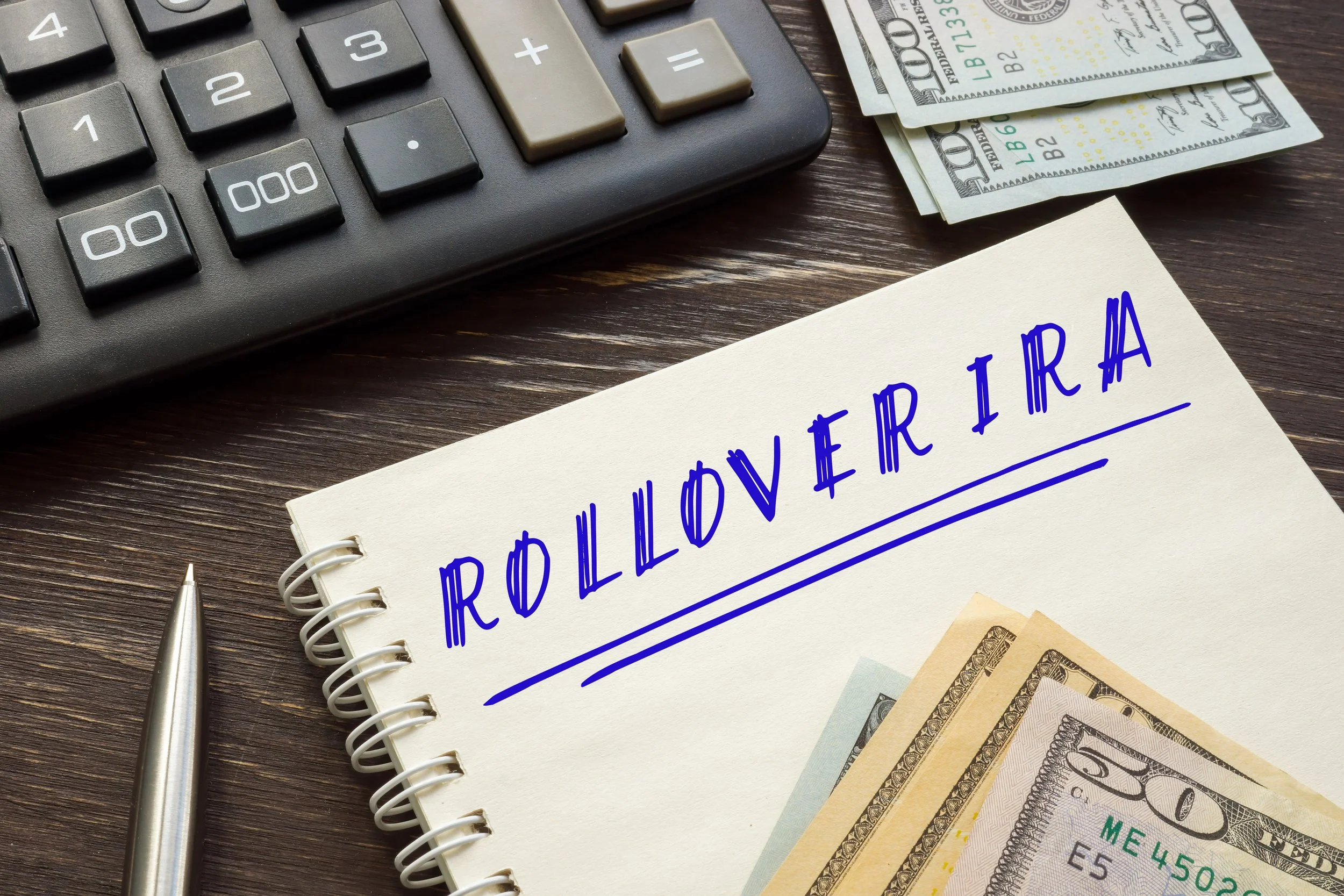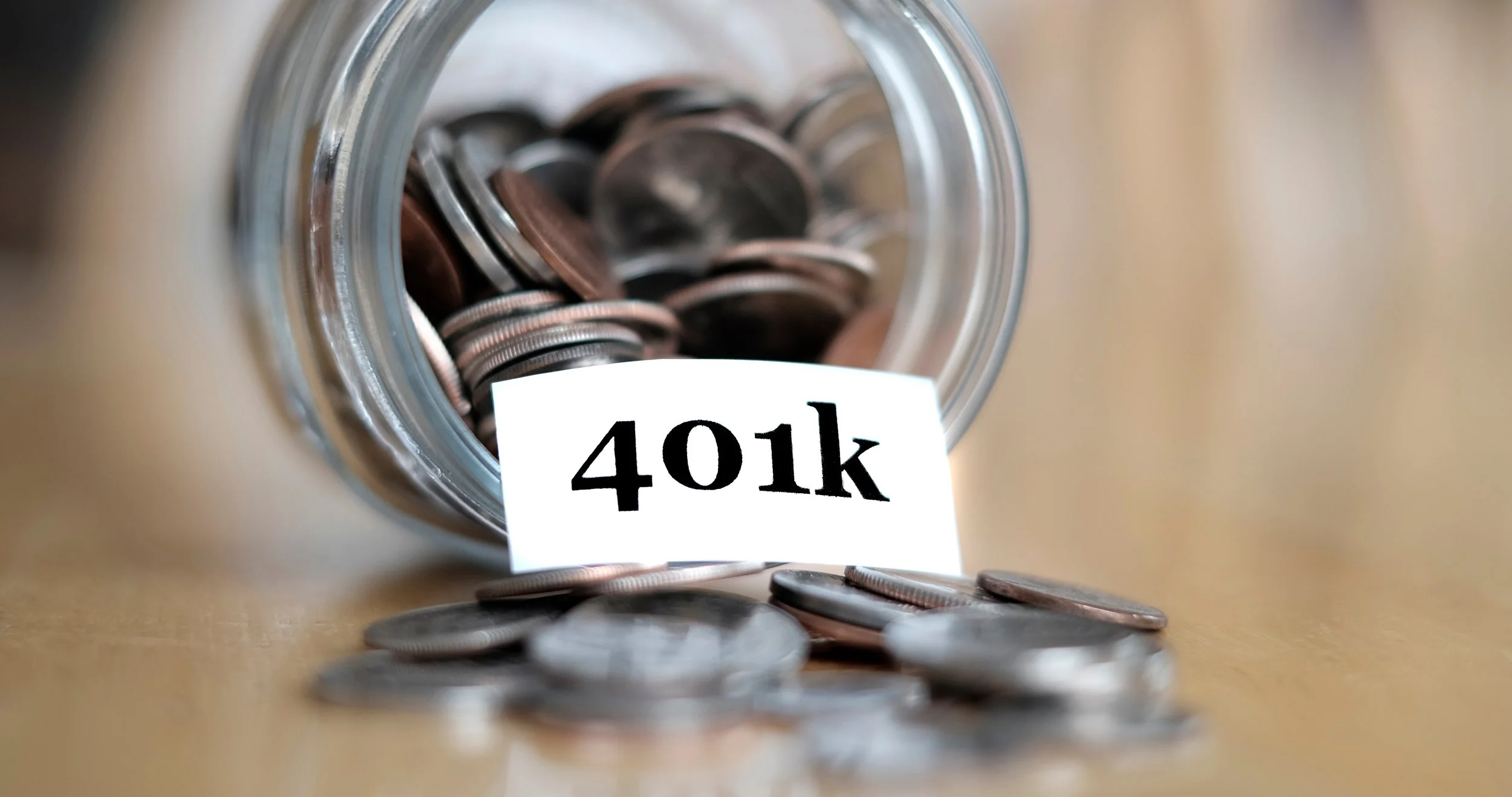5 Tips For Dealing With A Bear Market
In light of the recent stock market decline, many people are wondering what they should do to survive the bear market. Large fluctuations in stock prices like the ones we experience during a bear market often cause investors to panic and act irrationally. However, I’m going to give you five tips to help weather the financial storm in your portfolio. Get ready to explore the history of bear markets and time-tested strategies used to come out on top during market declines. Click Here to listen to this instead.
Key Takeaways:
What is a bear market?
The importance of knowing your asset allocation
Why you should have a diversified portfolio
Don’t time the market
Should I stop investing?
The impact of having a financial advisor
4 Things to Know Before Doing a 401(k) Rollover with Raytheon (RTX)
A 401(k) rollover occurs when you move a retirement plan with a former employer into an Individual Retirement Account (IRA) or another retirement plan with your new employer. It is also common for a retirement plan to allow you to do this when you reach age 59 1/2, even while still working for that company. You will see advertisements telling you to rollover your old retirement plan, but these commercials fail to cover the things you need to consider before doing a rollover. Throughout this writing, we will cover the four most important things to consider before rolling over your Raytheon Savings Plan.
Key Questions:
Do you own Raytheon stock in your 401(k)?
Do you have a loan against the Raytheon Savings Plan?
Are you under age 59 1/2?
Are you satisfied with the investment options in Raytheon Savings Plan?
2 Upcoming Changes for CT State Employees Pensions in 2022
According to the Office of the State Comptroller, as of November 19, 2020, there were 13,066 state employees (full-time and part-time) who are eligible for normal or early retirement before July 1, 2022. With that in mind, there are two significant changes to the CT State Employees Pensions that will affect those who retire on or after July 1, 2022. If you have a pension through the State of CT then the question you should be thinking is, should I retire before the changes take effect? In this writing, we will cover various factors that will affect your ability to retire before July 1, 2022.
Key Takeaways:
What elements of the cost of living adjustment are changing?
How are my health insurance premiums changing?
Are you eligible to retire?
Setting your budget for retirement
8 Things to Know Before Buying a Second Home in Retirement
Wouldn’t it be great to own a second home in retirement? We have all gone away on vacation and found ourselves in love with the area we are vacationing in. We might have even caught ourselves thinking, “Wow, I could really see myself living here in retirement.” Having two homes in retirement may sound like an incredible retirement. But before you decide to purchase that second home there are several things to consider.
In this article we will cover:
1. Can you afford it?
2. Is using a mortgage the best way to purchase it?
3. How do you properly estimate your second home’s expenses?
4. What is your second home's potential rental income?
5. Will your second home be a good investment?
6. What unexpected costs might there be with your second home?
7. How well do you know the area where you are buying?
8. Is it okay to rent rather than own in retirement?
4 Important Considerations Before Doing a 401(k) Rollover
What exactly is a 401(k) rollover? It is when you have money in a 401(k) (or another type of retirement plan) with a former employer, and you then transfer that money into an Individual Retirement Account (IRA) or another retirement plan with your new employer. Many retirement plans will also allow you to do this when you reach age 59.5, even while still working for that company. There are a tremendous number of advertisements out there telling you that you should roll over your old retirement plan, but many of these do not adequately disclose or cover what you should consider before doing a rollover. In this post, I will cover the four most important things to consider before completing a rollover.
1. Do you own stock in your 401(k) for the company you previously worked for?
If you own stock in your 401(k) from a previous employer, you can potentially save taxes on this money by taking advantage of an IRS distribution option known as net unrealized appreciation or NUA. It allows the company stock portion of your 401(k) to be taxed as a long-term capital gain, rather than as ordinary income, which for many people would be a tax saving. Unfortunately, many people have never heard of NUA and just sell the company stock when doing a rollover voiding the ability for this tax savings.
Top 10 Interview Questions When Hiring a Financial Advisor
1) Are you a Fiduciary and a fee-only firm?
Yes we are a Fiduciary and always act as one. Being a Fiduciary means putting our clients interests ahead of our own at all times. Imagine going to see a doctor about a hip problem and without the doctor examing you or performing any diagnostic tests trying to sell you a hip replacement. The doctor then explained you need to act today before prices went up. Later you found out that the doctor was paid extra and received a free Hawaiian vacation for selling you the hip replacement. While absurd for the medical profession, unfortunately these practices go on every day with non-Fiduciary advisors.
Additionally, we are a fee-only advisory firm. What that means is we don’t accept any commissions for recommendations we make or the investments we select for our clients portfolio’s. There are some fiduciary advisors, who maintain insurance and brokerage licenses, that allow them to receive commissions for the recommendations they make. Though we also once maintained these licenses, we believe this creates unhealthy conflicts of interest. We believe that being a fee-only fiduciary advisor is the best way to truly help our clients. Each Fiduciary firm should provide their firm disclosure document (otherwise know as ADV) in advance of hiring them and we recommend that you read it thoroughly for any conflicts before hiring them.
Should You Take an Early Retirement Package During The COVID-19 Crisis
As the economy continues to shrink during Covid-19 some companies are being forced to cut costs. Some are doing it through suspending 401K matches and others are starting to reduce head count by offering buyout/early retirement packages with incentives.
You may be offered one of these packages and are thinking of taking it. As summer is on the horizon what would be better than getting paid to enjoy the nice weather 😊. However, before you accept there are some things to consider:
1) What does the package offer?
There are no set rules for early retirement packages but often you get so many weeks of salary based on years of service up to a maximum. For instance, they might offer you two weeks of service for every year that worked. Sometimes if your company offers a pension, they may offer you a slight increase on it as an incentive. If you have any unused sick or vacation days make sure you’re getting paid for those too. If they are not offering much, then you may not want to take it.
Remaining 2019 Tax Deductions Before You File
If you’re like most Americans you’ve possibly already filed your 2019 Tax Return or are starting to get ready to file it. Most tax deductions need to be done during the tax year to take advantage of them but there still are a few that you can take advantage of before you file.
#1 Contribute to an HSA account if you’re eligible and haven’t done so for 2019 or haven’t maxed out your contribution fully for 2019.
HSA accounts are still one of the best kept secrets in retirement planning. Most people are unaware that you receive a deduction on the contributions, the money can grow tax deferred while it’s in the HSA account, and when you take it out it’s tax free if used for medical expenses. There is no other triple tax-free plan available in retirement planning. In order to get the most out of your HSA plan it is best to let your contributions grow over time and pay health care related costs(such as co-pays and prescription drugs) out of pocket. You should maintain an excel or google sheets file tracking these expenses and then later on you can take out the money tax free. The more time you give the money to grow the more it will work for you.Once you reach 65 take money out that is not for medical expenses and only pay tax on it, no penalties. There are also many HSA providers that allow you to invest the money in mutual funds or ETF’s will little or no cost such as Fidelity or TD Ameritrade. The limits for a single person are $3,500 and $7,000 for a family. If you’re over 55 you can also contribute an additional $1000. If you’re married each spouse should have their own HSA account to take advantage of the over 55 extra $1000 contribution.
SECURE Act: What Does It Mean To You?
In the final weeks of 2019, the Senate passed the SECURE Act (it was passed by the House in the Summer) and was signed into law by the President. This legislation will have a major impact on your retirement accounts and your ability to create a legacy with them for your children and grandchildren. Many of the other parts of the Act will probably have minimal impact to you but I’ll go over them anyway.No More Stretching...The stated goal of the SECURE Act, which stands for “Setting Every Community Up for Retirement Enhancement” is to strengthen retirement security across the country. From my perspective it does very little to accomplish that. It increases taxes on inherited retirement accounts and prevents them from creating multi-generational wealth for the beneficiary. It does this through the elimination of the so called “stretch IRA” for non-spousal beneficiary inheritors. Under the current law if a non-spousal beneficiary such your son or daughter where to inherit your IRA (or any non-Roth retirement account) they had choices with how they paid the tax on your IRA. They could take it all out at once and pay the tax in one year or take it out over their lifetime to spread out the tax. With the SECURE Act, a non-spousal beneficiary who inherits your IRA must cash in the entire account within 10 years of your death. There are a few exceptions to this such as disabled beneficiaries (as defined by the IRS) , chronically ill (as defined by the IRS with limited exception) beneficiaries, individuals who are not more than 10 years younger than you, certain minor children (of the original account owner) but only until they reach the age of majority (18 in most states).These beneficiaries can still take out distributions over their lifetime rather than over 10 years. However, once minor children reach the age of majority in their state, they must empty the account within 10 years.
It’s Time to Talk About Aging
We are all, inexorably, marching toward old age. By 2030, 72 million Americans will be age 65 or older. The good news is longevity has been improving, and people are remaining healthy and vibrant at older ages.
The bad news is cultural perceptions of ‘old’ people have not kept pace. A 2016 analysis by the World Health Organization found ageism was abundant and many people were completely unaware of their biases toward older people.
Psychology Today warned, “The especially slippery part about ageism is that we can witness it in action time and again throughout society, often without anything triggering our internal antennae that tells us ‘Hey, something is deeply amiss here.’”
Ageism and elder abuse
One of the ugly things hiding beneath the rock of ageism is elder abuse, including financial exploitation. During 2017, the Department of Health and Human Resources reported:
Women and the Retirement Crisis
Here’s a number that will knock your socks off: $400 trillion.1
By 2050, the retirement savings shortfall in eight of the world’s largest economies is expected to reach $400 trillion, according to estimates from the World Economic Forum (WEF). The shortfall is the difference between the amounts of money retirees may receive from government and/or employer pensions and individual savings. The amount they need to replace 70 percent of their pre-retirement income is also factored in.1
Retirees in the United States are expected to have the biggest shortfall, coming up at about $137 trillion short.1
There are many reasons why countries and individuals are poorly prepared to meet the challenges of retirement, including:
Tax Strategies to Save Money on Taxes For 2019
Due to the recent tax law changes there are some tax savings and deferral strategies that you should be aware of for 2019. As we go into the second half of the year here are some ideas to help you lower and defer taxes:
1. Participate or Increase Your Employer-Sponsored Plan Contribution
· In many employer-sponsored retirement plans, your contributions are pre-tax and reduce your taxable income
· You receive long-term tax benefits since principal and earnings grow tax-deferred until withdrawn
· You can contribute the maximum to a 401K, 457, or 403B Plan of $19,000 this year. Those over 50 can contribute an additional $6,000 for a total of $25,000
· Also, many employers offer a match on your contribution (which is free money to you) so make sure you put in enough to receive the maximum company match
2. Contribute to A Traditional IRA
· If you don’t have an employer sponsored plan available, consider contributing to a Traditional IRA
· Depending upon your income, you may be able to deduct contributions in addition to an employer sponsored plan contribution
Reduce Your Stress By Opening A Health Savings Account
Healthcare. This may be one of the most stressful words in the English language today. Especially when you think about the cost of Healthcare in retirement.
For instance, Fidelity estimates that an average 65 year old couple retiring today will need to set aside $280,000 to cover healthcare related expenses in retirement, excluding long term care costs. Put another way they estimate that same couple will spend $11,000 on healthcare related expenses their first year in retirement. So how should one save for those expenses? The answer… a Health Savings Account.
Health. Savings. Account.
Those three words can help reduce the stress of retirement healthcare expenses. A Health Savings Account, or HSA, is a tax-advantaged account that can be opened by anyone who is enrolled in a high deductible health plan (with a deductible of at least $1,350 for individuals or $2,700 for families for 2018). Typically, HSAs offer three significant tax benefits:
1. Tax-free withdrawals. If you use HSA savings to pay qualified medical expenses, the withdrawals are income tax free.
Health Insurance Coverage Before Age 65?
Would you like to retire before age 65? Many of us have the dream of retiring early. If you are seriously considering this or find yourself without a job before age 65 then you need to know what your options for health insurance are.
Why is 65 an important age? At 65 you are eligible for Medicare. For most people the cost of Medicare is much less than the cost of individual or even employer sponsored health insurance. What are your health insurance options until you turn 65?
2018 Year End Tax Planning Tips
As we wind out 2018 there is still time to make some changes to your finances that can improve your taxes for this year and possibly years to come. Here are some things to possibly act on before we ring in the new year…
1) Should you roll over an old 401K before 2018? You probably heard by now that a new tax plan was rolled out this year. It slightly lowered the tax brackets for most and almost doubled the standard deduction for all. For many of us this this will result in lower taxes this year as compared to last. However due to the doubling of the standard deduction many of us will not be able to itemize our taxes for 2018 and beyond. This means that several deductions that were available in 2017 are no longer available; most notably the ability to deduct charitable contributions. One way around this is to donate all or part of your required minimum distribution (RMD) (Up to $100,000 per year) directly to a 501(c)(3) charity. It’s called a Qualified Charitable Distribution (QCD). RMD is an amount that one must withdraw and pay taxes on from retirement accounts (except for Roth’s) once they reach 70 and ½. By doing a QCD, this allows the charity to benefit from the donation and you to not pay taxes on the donation. In order to take advantage of this you must make the donation directly from your IRA custodian to the charity. Meaning you can’t take receipt of the money first then donate it to the charity. It’s a relatively easy process, usually just filling out a form from your custodian and they’ll send the check. The thing to keep in mind is that you can only do this from an IRA, not a 401k. So, if you’re turning 70 and ½ next year and want to continue donating to charities consider rolling over your old 401K to an IRA before 2019. If you don’t do this by the end of this year, next year you’ll need to take an RMD from each 401K and the full amount of the RMD will be reported on your 2019 taxes. Not to mention there are many reasons for someone approaching 70 not to leave an old 401K behind, such as lower fees, better investment options, simplifying things and better estate planning options. For younger people there are a few reasons to possibly not rollover an old 401K which I’ll cover in another article.
2) What should you do about investment losses? No one likes to lose money in their investments but it’s part of investing. This year there has been a lot of volatility and many investments are down on the year. However, when you do have loses you may be able to use them to reduce your tax bill. First, let’s define what an investment loss is. It means that an investment is worth less than what you bought it for. If you have investment loses in a non-retirement brokerage account, then you can capitalize on them by selling the investment. This now creates a loss and if you wait 30 days before buying the investment back you can write up to $3,000 of the loss off on your taxes. If the loss is greater than $3,000 then you can carry the loss forward until it is written off in future years ($3,000 per year). If you have gains in the future, then any loses you’re carrying forward from previous years will offset those gains. Technically short-term losses are first deducted against short-term gains, then long-term loses are deducted against long-term gains. Net losses of either type can then be deducted against the other kind of gain. So, dump those loses before the year ends.
Being Financially Savvy is A Family Business
Like it or not, we’re all involved in running the “family business.”
We worry that our parents might outlive their retirement savings. We’re comforted by the thought that family members would probably bail us out if we got into money trouble. We strive to help our children financially, and we’d like to bequeath them at least part of our nest egg.
In short, our family is our asset, liability, and legacy.
Now here’s the contention: It’s time to build this notion into the way we manage our money.
Here are just some of the reasons why:
Raising Children
If your children grow up to be financial deadbeats, you may likely rise to the rescue. Indeed, your children could turn out to be your greatest financial liability.





















